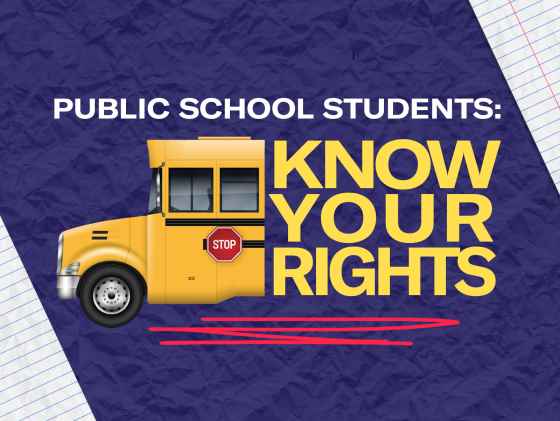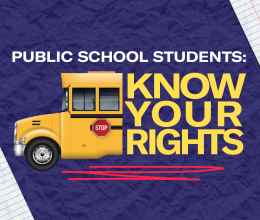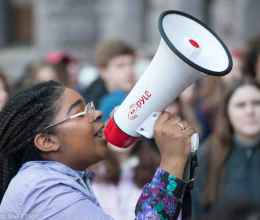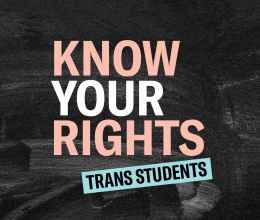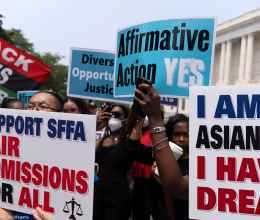The United States Supreme Court has explained on different occasions that “the Bill of Rights is not for adults alone”; “[s]tudents in school as well as out of school are ‘persons’ under our Constitution.” However, what protections apply to students when public school officials take it upon themselves to search or question students seeking contraband, or suspect them of criminal behavior? The Indiana Supreme Court has stated directly that “minors in school are subject to supervision and control . . . [and] are entitled to less privacy at school than adults would enjoy in comparable situations.” We all want our children to have a safe, positive learning environment, and we want school officials empowered to protect that environment, but in what context and to what extent should students have to sacrifice rights?
When police interrogate children, we readily acknowledge that the rules must be different. The confessions of children require special caution. The reality of a child’s age generates commonsense conclusions; in police interrogations, “a reasonable child will . . . sometimes feel pressured to submit when a reasonable adult would feel free to go.” To address these concerns, children cannot waive their rights without meaningful consultation with a parent or lawyer. And, a child’s statement cannot be used in court if it was induced by a “materially false” statement by the police.
Two companion decisions from the Indiana Supreme Court address a child’s rights during interrogations in the school setting. In one case, a Decatur Middle School student had been escorted off a bus by police and questioned by a vice principle with police officers hovering over him and encouraging him to confess. Because of how police involved themselves, the Indiana Supreme Court determined that B.A.’s statements required Miranda warnings that weren’t provided. In the other case, however, a Brownsburg High School assistant principal investigating graffiti in the school’s bathrooms called a student, named D.Z. in the case, into his office for a closed-door discussion without police involvement. Not until after the confession, did a police officer speak with D.Z. The trial court allowed the prosecutor to use D.Z.’s statement to the assistant principle, but not to the officer. The Indiana Supreme Court affirmed, holding that when police officers aren’t present, students are neither in custody nor under interrogation, unless the school officials act as agents of the police—meaning there is no obligation upon a school official to give Miranda warnings or other protections before interrogating a student.
The Indiana Supreme Court said the holding in D.Z. “clear rule,” a statement which raises serious concerns. Granted, Miranda, was in response to a “police-dominated atmosphere.” But, this “clear rule” set by the Indiana Supreme Court tends to ignore the inherent power/control disparity between student and school official, and the potential coercive atmosphere. It also ignores the potential motivations of the school official, even if acting on their own initiative.
Public school officials are state actors in many respects: they are prohibited from treading on students’ First Amendment rights to free speech, nor can they inhibit a student’s reasonable expression of their religious beliefs. And, seemingly most relevant to the act of interrogation, when they search students, the Fourth Amendment applies.
School officials have a great deal of control over students—both psychological and physical. School officials stand in loco parentis (in the shoes of parents) and are charged by law with the custody and control of students in their care. If students do not attend school, a new Indiana law requires a referral to the prosecutor. If a student acts up, they are met with punishment, including physical punishment that causes pain (whether prudent or not). While “zero tolerance policies” may be waning, it is still common that any evidence of criminal conduct in schools results in a referral to the juvenile court.
In addition to coercive interrogations, schools routinely conduct invasive searches of students. In fact, the ACLU of Indiana currently has two pending lawsuits against Indiana public school officials at Jay County Jr.-Sr. High School alleging that students were intrusively searched, both involving a male school official watching as female students were ordered to lift their shirts and pull their bras away from their bodies. Both students felt compelled to comply with the instructions given during the search, despite being humiliated. That is the reality of these interactions—students feel compelled to comply.
The protection of the Fifth Amendment is against the government compelling someone to be a witness against themself. When children are in school, they are subject to the control of school officials much to the same extent that adults are subject to the police. Especially where school officials curtail the freedom of a student while digging for evidence of a crime to give to the prosecutor, even if on their own initiative, the “clear rule” that none of the many protections against self-incrimination apply is at least a little bit murky.

